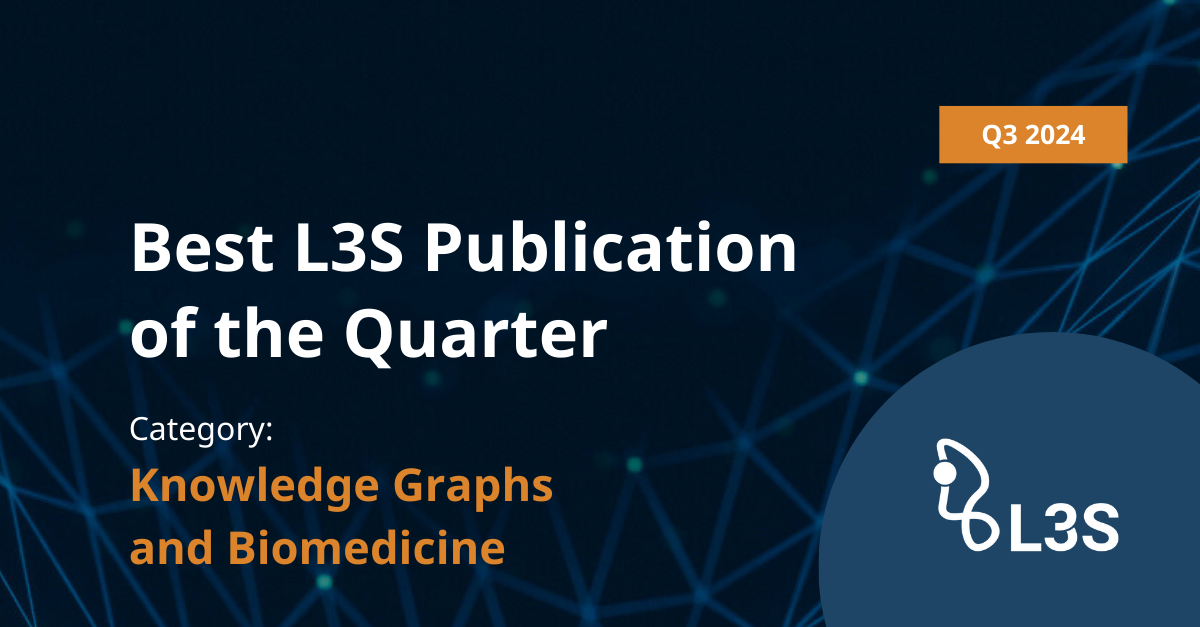L3S Best Publication of the Quarter (Q3/2024)
Category: Knowledge Graphs and Biomedicine
Family history of cancer and lung cancer: Utility of big data and artificial intelligence for exploring the role of genetic risk
Authors: Virginia Calvoa, Emetis Niazmandb,Enric Carcereny, Delvys Rodriguez-Abreu, Manuel Cobo, Rafael López-Castro, María Guirado, Carlos Camps, Ana Laura Ortega, Reyes Bernabé, Bartomeu Massutí, Rosario Garcia-Campelo, Edel del Barcon, José Luis González-Larriba, Joaquim Bosch-Barrera, Marta Martínez, María Torrente, María-Esther Vidal, Mariano Provencio.
Published in the Lung Cancer Journal
The paper in a nutshell:
This research investigates the role of family history in lung cancer (LC) development, using knowledge graphs and artificial intelligence (AI) to explore genetic predispositions. By analyzing data from over 15,000 lung cancer patients, the study identifies critical genetic factors that increase lung cancer risk, particularly for those with close relatives who have had cancer. The findings emphasize that a family history of cancer (FHC) can significantly raise lung cancer risk, especially in younger individuals and women, even among non-smokers. The AI-driven analysis utilizes both statistical and predictive techniques, revealing how genetic mutations, such as EGFR and ALK, contribute to higher lung cancer susceptibility in these patients.
Which problem do you solve with your research?
This study addresses the challenge of identifying genetic factors that elevate lung cancer risk in individuals with a family history of cancer. By quantifying these risks, the research helps predict who might be at higher risk and informs personalized prevention and treatment strategies.
What is the potential impact of these findings?
These insights could transform how lung cancer risk is assessed, leading to more precise screening recommendations, particularly for individuals with a familial cancer background. Moreover, understanding specific genetic vulnerabilities may lead to earlier detection and targeted treatments, potentially improving survival rates.
What is new about this research?
This study is innovative in its integration of symbolic frameworks with AI-based predictive methods to assess lung cancer risk. The approach combines knowledge graphs and Bayesian networks, offering a comprehensive model to understand how family cancer history impacts lung cancer development. This hybrid analysis, combines statistical methods with advanced AI, reveals patterns of risk, especially in non-smokers and younger patients with family history.
Paper link: sciencedirect.com/science/article/pii/S0169500224004549


